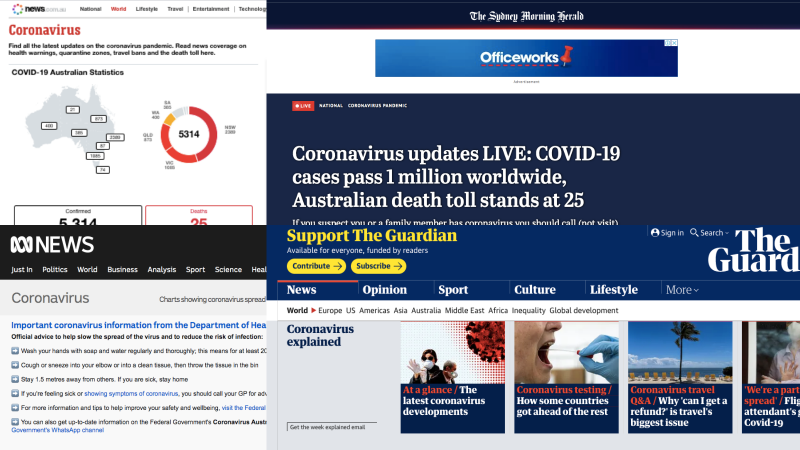‘Back us not block us’: Media owners and IAB urge advertisers to stop blocking ads next to COVID-19 news
Brands and agencies are mistakenly updating their programmatic and other media buying to prevent advertising next to news stories covering the COVID-19 crisis, according to industry association IAB Australia.
Both the IAB and media owners have responded with an urgent call for advertisers to “stop blocking the news”, and prioritise supporting news outlets over “generic brand safety rules”.

Coronavirus coverage has dominated every news outlet in the country


If Australian news providers didn’t put out such misleading news articles and click bait fear focused headlines that create unease for fragile Australian’s I would feel more comfortable doing this. I am actively avoiding news sites other than ABC & the government apps to keep the calm as are most of my peers.
Who isn’t using an ad blocker on their browser in 2020?
Who is still leaving comments from 2018 like that in 2020?